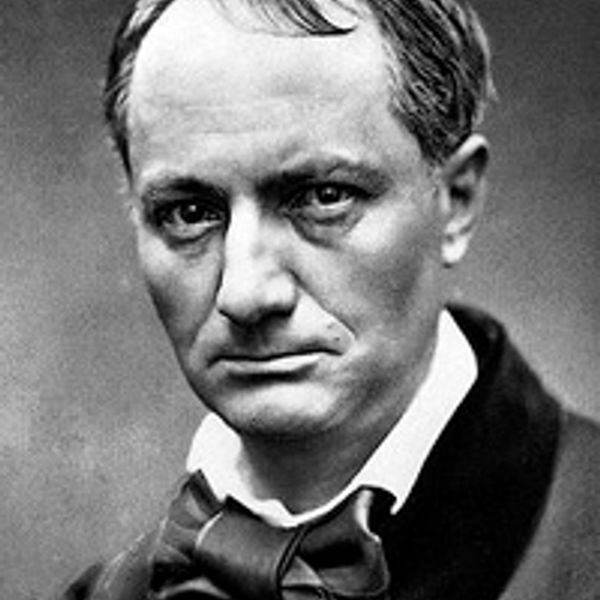Lia Purpura, Parasol Mushroom (detail), featured in AGNI 102
Le Cygne
When that little Virgilian stream crosses my mind
I think of you crouching over it, Andromache,
And crying your eyes out—as if such a meager
Image of your native river could ever mirror
The magnitude of your loss, like a second Simoïs.
But it does. And I can hear its trickling voice
Meandering through me as though it were there to remind me
If the banks of my memory are suddenly fertile,
Touched by Andromache’s tears, the sorrows are mine
As I walk around and around the new Carrousel.
Already the place we like to call Old Paris
Is a thing of the past. (Not even my impulsive
Heart can change its mood as quick as a city
Changes its look.) Now it’s only the eye
Of the mind that can see far back enough to envision
What used to be here: all the stalls and the little shops
Vivid as their Greek columns so crudely engraved,
Even the occasional tufts of grass poking up
At the base of cornerstones turning green with moss
As they soak in puddles that shake with my reflection.
(Amid so much bric-a-brac, heaped so haphazardly,
Curios still gleam at me from their glass cases.)
Just after dawn, when the teeming menagerie
Became a poultry market, what happened there once
Will always stay with me, like the bracing voices
Of garbage collectors in the cold morning air,
When they shout to each other at the top of their lungs
As if they were trying to make it crystal clear
There’s work to be done, just as the dreamer looks up
At a summer sky shattered by a thunderclap.
But no more startling than that swan that escaped,
One day, from its cage, its webbed feet imprinting
The dirty pavement as it dragged its plumage
Across the cobbles, whose ruts looked even ruttier
Swept by the swan’s feathers. But then it demurred,
Pointing its open beak at the empty gutter,
And let out a shriek—as if some familiar image
Of the lake where it was born had just welled up
From its swelling breast; as if it could bathe its wings
In water tremulous as the dust-pools they stirred.
The snow-white swan beseeching the snow-white clouds:
“When will your billows turn black enough to thunder,
Till the sky is steeped in rain?” Desolate bird,
Inexorable myth of immortality,
When I saw the way you hungered after heaven
With your ravenous beak, your neck’s sinewy tendons
Twitching convulsively, I thought of Ovid
In exile, protesting his fate on the Black Sea—
And the silent reply of the sky’s blue rotunda.
Ovid, abandoned like one of his Heriodes.
~
Paris puts on a new face. New palaces,
New scaffolding set for erecting taller facades.
Everything but my melancholy has moved.
Now it’s only through allegory’s winding alleys
That I turn the corner and find the streets as they were—
But no way to get out from under the crushing dread
That all those cherished days in all those places
Are buried under memory’s rubble. No wonder,
Of all the moving images I see in the Louvre
None is sadder than my swan in its majesty.
My swan free from its cage, but tangled in the net
Of desire’s unyielding torment; its crazy behavior
Ludicrous and sublime in the way that all exiles
Can’t help being what they are: strange birds.
And then I think of you, Andromache, beyond
The matchless reach of your husband’s arms, helpless
As you bore the brunt of Achilles’ son at the height
Of his hubris; I think of how you chose to revile
Yourself, kneeling before “the grave of Hector.”
A tomb that was empty as your love for Helenus.
In the shadow of the Louvre I saw the Congolese
Face of a woman. She was squatting down in the mud.
I couldn’t look away from those eyes, so hungry to see
Something in the fog, those eyes that consumption
Was eating away. As if the fog might lift
Like a sheet from some massive mural, unveiling the lush
Colors of coconut trees so keenly missed.
In the shadow of the Louvre I saw the children
Orphaned from everything but their wasted flesh,
Curled up like flowers the frost had nipped in the bud.
And now I thought of how many are suckled on nothing
But the flow of their tears, as if the unrelenting
She-Wolf of grief had offered her generous teats
To their forsaken mouths, only to milk them
Of every joy. And just as old memories trumpet
Their tired refrains, I thought of loss that memory
Can’t restore, and the blank look of a castaway’s
Empty horizon; I thought of conquered countries,
And prisoners rotting in cells, and my soul in exile,
Along with so many others, lost in a jungle.

Charles Baudelaire
Charles Baudelaire (1821—1867) is the towering figure of nineteenth-century French poetry. Les Fleurs du mal, generally considered one of the greatest works in the history of French literature, was published in 1857, and a number of poems in it were condemned by the imperial government as an offense against French morals. During the years of the American Civil War, he wrote lyrical prose poems that were collected posthumously in the book Petits poèmes en prose (Little Poems in Prose). Baudelaire was also a deeply influential art and literature critic and translated five volumes of the works of Edgar Allan Poe.

George Kalogeris
George Kalogeris teaches English literature and Classics in Translation at Suffolk University. He is the author of a book of paired poems in translation, Dialogos (Antilever, 2012), and a book of poems based on the life and notebooks of Albert Camus, Camus: Carnets (Pressed Wafer, 2006). His poems and translations have been anthologized in Joining Music with Reason (Waywiser, 2010; selected by Christopher Ricks). (updated 10/2016)
